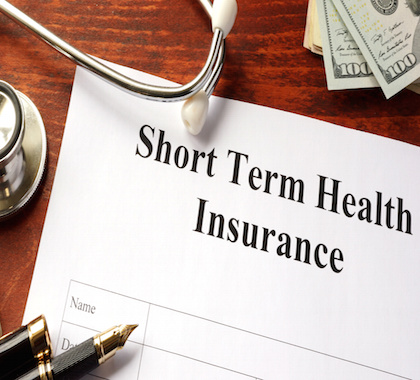The October vote ended in a 50–50 tie, falling short of the majority needed to pass the legislation.
Earlier this year, the U.S. Department of Health and Human Services issued a rule change expanding access to STLD insurance plans. The new rule increases the renewal period from three months to 12 and allows the plans to be carried for up to three years. The Obama administration had established a limit of one year for the plans.
STLD plans are designed to fill gaps when people temporarily lack insurance coverage. The Trump administration has moved to make these plans more widely available to help offset rising Obamacare premiums. Premiums for Obamacare benchmark plans, Silver Plans, are expected to increase by 15 percent in 2019, according to the Congressional Budget Office.
Insuring the Uninsured
A study by the Urban Institute estimated the Trump administration’s rules expanding access to short-term plans could enable an additional 1.7 million Americans to buy health insurance by 2019.
Chris Pope, a senior fellow at the Manhattan Institute, says the report, which collected data on consumer trends in the health insurance market, demonstrates STLD plans make health insurance more accessible.
“The statistics spoke for themselves,” Pope said. “When you go through the tables, it’s pretty striking how many people benefit from these plans. These plans really make insurance available to many more people at a much lower price, with not much negative impact to people already on the exchange, so it’s really a win-win for everyone.”
‘Economic Sanity’
Sally Pipes, president of the Pacific Research Institute, says STLD plans offer people more choices, increase price transparency, and provide some much-needed stability to the health care market.
“High-deductible plans restore economic sanity to the health insurance market,” Pipes said. “Consumers of high-deductible plans tend to shop more wisely for their health care needs.
When an individual pays out-of-pocket for doctor visits and prescription drugs, individuals tend to shop carefully and look for the best deals.”
Benefits for Consumers
Because STLD plans offer consumers coverage based on their individual and family needs, they are significantly more affordable than comprehensive Obamacare plans.
“Health insurance has become unaffordable for millions of Americans, with premiums increasing each year and choices decreasing,” said Tarren Bragdon, president and CEO of the Foundation for Government Accountability (FGA), in a statement following the announcement of the expansion of STLD plans by the Trump administration. “Short-term plans offer the flexibility and affordability that consumers need, increasing coverage for two million individuals who are currently uninsured and ensuring that Americans are able to purchase the coverage that works best for them.”
David Mueller ([email protected]) writes from Blacksburg, Virginia.
INTERNET INFO:
“Updated: The Potential Impact of Short-Term Limited-Duration Policies on Insurance Coverage, Premiums, and Federal Spending,” Urban Institute, March 14, 2018: https://heartland.org/_template- assets/documents/publications/Potential%20Impact%20of%20 Short%20Term%20Plans.pdf
“Senate Dems fail to block Trump’s policy on short-term health insurance,” Modern Healthcare, October 10, 2018: https://www.modernhealthcare.com/article/20181010/NEWS/181019984




